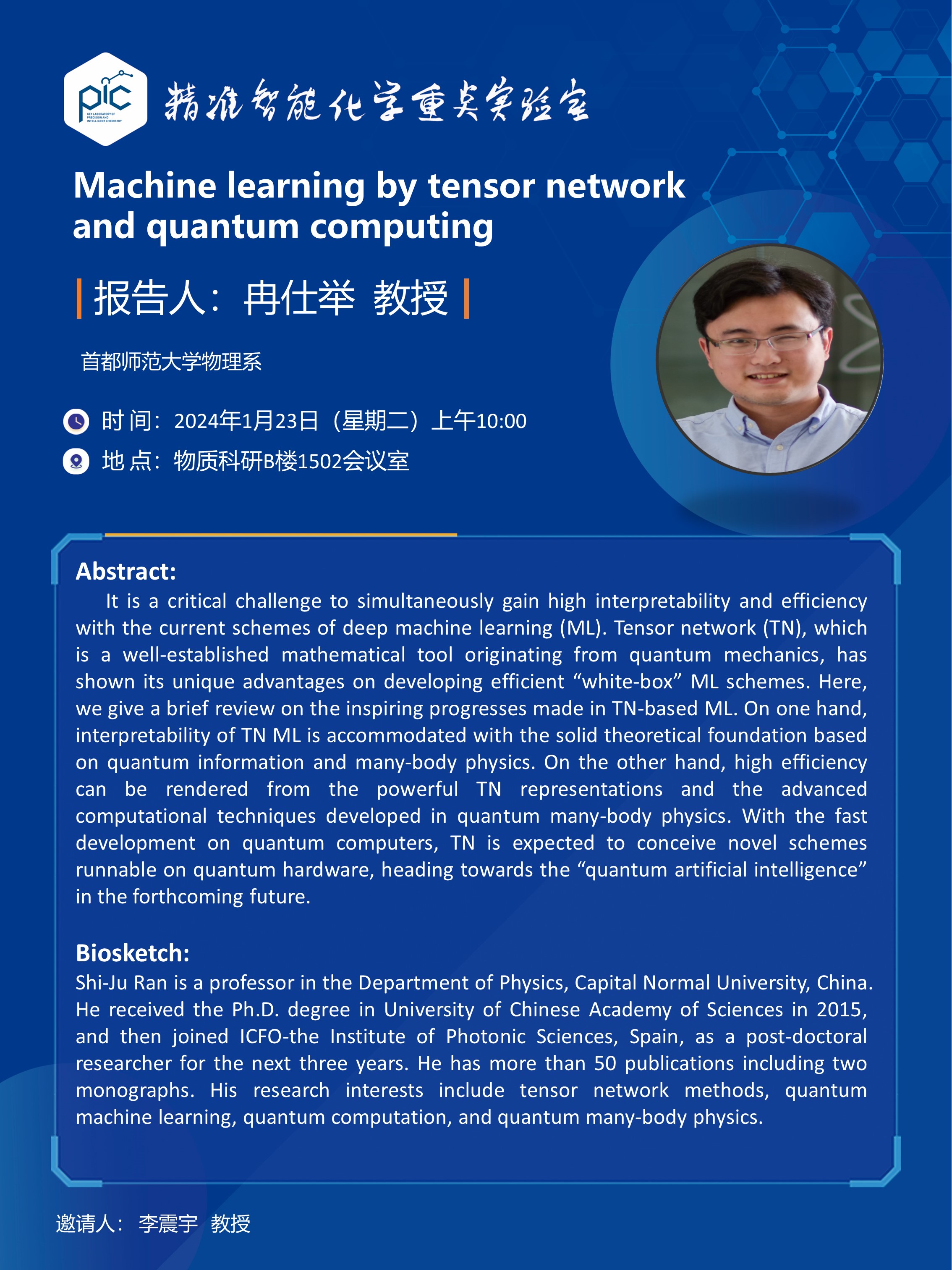报告题目 | Machine learning by tensor network and quantum computing |
报告人 | 冉仕举 教授 |
报告人单位 | 首都师范大学物理系 |
报告时间 | 2024年1月23日 (星期二) 上午10:00 |
报告地点 | 物质科研B楼1502会议室 |
主办单位 | 精准智能化学重点实验室 |
报告摘要 | It is a critical challenge to simultaneously gain high interpretability and efficiency with the current schemes of deep machine learning (ML). Tensor network (TN), which is a well-established mathematical tool originating from quantum mechanics, has shown its unique advantages on developing efficient “white-box” ML schemes. Here, we give a brief review on the inspiring progresses made in TN-based ML. On one hand, interpretability of TN ML is accommodated with the solid theoretical foundation based on quantum information and many-body physics. On the other hand, high efficiency can be rendered from the powerful TN representations and the advanced computational techniques developed in quantum many-body physics. With the fast development on quantum computers, TN is expected to conceive novel schemes runnable on quantum hardware, heading towards the “quantum artificial intelligence” in the forthcoming future. |
报告人简介 | Shi-Ju Ran is a professor in the Department of Physics, Capital Normal University, China. He received the Ph.D. degree in University of Chinese Academy of Sciences in 2015, and then joined ICFO-the Institute of Photonic Sciences, Spain, as a post-doctoral researcher for the next three years. He has more than 50 publications including two monographs. His research interests include tensor network methods, quantum machine learning, quantum computation, and quantum many-body physics. |

